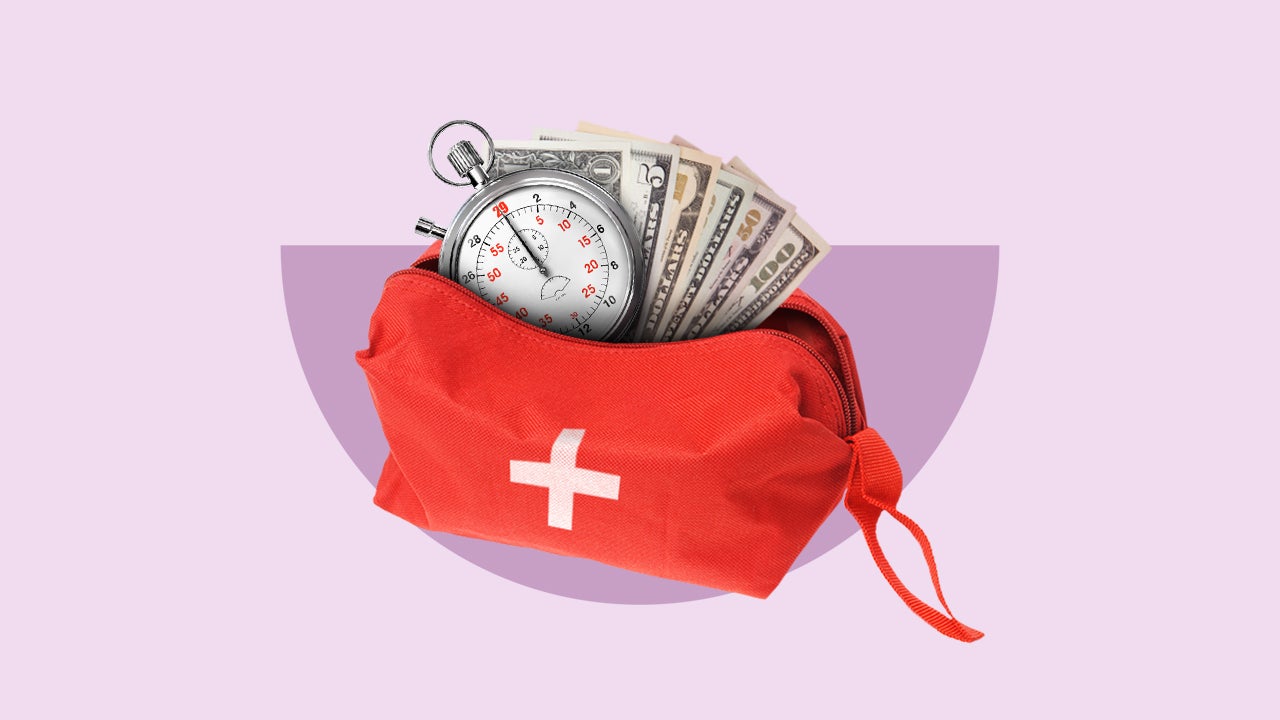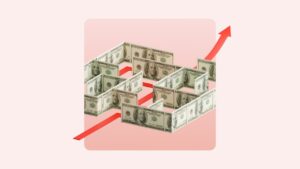Are government loans easier to get?




Key takeaways
- Government-backed loans like FHA, VA, and USDA loans, often touted easier to get, actually have higher denial rates than conventional loans.
- Government loans do offer lower down payment and credit score criteria.
- However, lender-imposed overlays, lengthy applications and more rigorous inspections or appraisals can make actually closing on a government-backed loan harder.
If you’re gearing up to apply for a loan to buy a home, mortgage rejection rates might look a bit scary: More than 13 percent of applications for a home loan have been denied over the past year as of June 2025, according to the Federal Reserve Bank of New York.
While government-backed loans are designed to make homeownership a reality for more Americans, rejection rates for these loans actually tend to be higher than conventional loans based on data from the Home Mortgage Disclosure Act. Read on to learn how government-backed loans work, how lenders review applications and what you can do to make your application land in the “approved” pile.
What are government-backed home loans?
A government-backed home loan is a type of mortgage that’s insured by federal government agencies. When you take out a government-backed home loan, the government isn’t loaning you money to buy a home. For that, you’ll need a mortgage lender. The government sponsors programs that guarantee or insure the mortgage, meaning the lender of the money, whether it’s a private bank, credit union or mortgage company, will be reimbursed all or part of the outstanding balance if you fail to make payments.
Examples of government-backed home loans include:
- Federal Housing Administration (FHA) loans
- United States Department of Agriculture (USDA) loans
- U.S. Department of Veterans Affairs (VA) loans
How is a government loan easier to get?
Applying for a mortgage comes with a lot of scrutiny of your financial profile. Government loans reduce that scrutiny in two key ways:
Credit requirements are lower
While conventional loans require a minimum 620 credit score, government-backed mortgages will consider applicants with credit scores that are lower, qualifying as just “fair.” FHA loans, for example, carry stated minimums of 580 or 500, depending on your down payment size.
Additionally, some government-backed loans will approve borrowers with significantly higher debt-to-income ratios than conventional loans. This means that even if you’ve got a large chunk of regular monthly payments — student loans, a car loan and credit cards, for example — you may still be able to add on your mortgage payment and get approved.
You need less cash upfront
Government-backed loans are more lenient when it comes to down payments, requiring smaller amounts — if any: VA loans and USDA loans, for example, typically do not need a down payment at all. In contrast, with conventional loans, 20 percent of the home’s purchase price remains the norm (while some lenders will take less, they will then charge you private mortgage insurance — essentially an extra monthly fee).
As a result, government-backed loans are often seen as a good option for young first-time homebuyers, who aren’t sitting on a pile of cash or have the most sterling credit scores.
Are government loans better for borrowers with past credit troubles?
Government-backed loans are easier to get if you have faced major financial difficulties in the past.
“Borrowers who have had events like foreclosures, short sales or bankruptcies will find government programs typically have a much shorter waiting period to qualify for a new loan than conventional programs,” says Darren Tooley, senior loan officer at Cornerstone Financial Services in Southfield, Michigan.
For example, while conventional loans may have a seven-year waiting period if you had a past foreclosure, Tooley says that FHA loans have a standard three-year waiting period, while VA loans have a two-year waiting period. Plus, both of those can be shortened to just one year with “extenuating circumstances,” according to Tooley.
The same goes for bankruptcies: While it varies depending on the way you file, the waiting period for a government-backed mortgage application is generally half (one to two years) that of a conventional mortgage (two to four years).
Government vs. conventional mortgages at a glance
| Features/Criteria | Loan type | |||
| FHA loan | VA loan | USDA loan | Conforming loan | |
| Credit score minimum | 580 (with 3.5% down)/500 (with 10% down) | 620 (lenders prefer) | Varies, but most lenders look for 640 | 620 |
| Debt-to-income maximum | 50% | 41% | 41% | 43% |
| Down payment minimum | 3.5% or 10%, depending on credit score | None | None | 3% (but any less than 20% requires mortgage insurance) |
| Mortgage insurance/fees | Upfront and ongoing mortgage insurance premiums (MIP) | Upfront funding fee | Upfront 1% guarantee fee, plus 0.35% annual premium | None, unless down payment is below 20% |
| Loan limits | $524,225 in most areas | No limit with full entitlement; varies by county with partial entitlement | $419,300 in most areas | $806,500 in most areas |
| Current interest rate (30-year fixed-rate purchase) | FHA loan rates | VA loan rates | Conventional loan rates | |
How can a government loan be harder to get?
Despite all the ways that government-backed loans appear to be easier to get, approval is by no means a guarantee. These mortgages have some of their own particular stumbling blocks.
You can’t borrow as much
The limit for FHA loans on single-family homes in most areas is currently $524,225 — certainly not a small amount of money, but it can pose challenges in an expensive housing market. (In contrast, conventional conforming loans go up to $806,500 in most areas.) If you’re hoping to buy a bigger home in a more coveted neighborhood, FHA limits may be tough.
The denial rate can be much higher
FHA loans might seem easier to get with lower credit score requirements, but it turns out their rejection rate is significantly higher than conventional loans. More than 14 percent of FHA loans received rejections in the third quarter of 2024 — more than six percentage points higher than conventional mortgages, according to government data. VA loans have the lowest denial rates of government-backed loans but are still higher than those for conventional loans.
There are special requirements
There can be plenty of additional strings attached when it comes to government-backed loans. If you want a USDA loan, for example, you’re going to be limited to buying in a rural area. And if you want a VA loan, you must prove you are a qualifying service member or veteran — or the spouse of one.
Your income might be too high
In addition to finding a home that meets the USDA’s definition of “rural,” there are loads of reasons that borrowers can encounter issues with approval. One surprising one: You make too much money. Guidelines cap household income at no more than 115 percent of the area median income, which can hinder loan approval if you’re earning a high income.
You must meet additional lender standards
Government-backed loans can also be tricky if the criteria change. “Since government-backed mortgages offer leniency with factors like minimum credit scores and higher debt-to-income ratios, they can carry high amounts of risk,” for the lender, says Tooley. It can’t sell these loans to Fannie Mae or Freddie Mac, for example (though the Government National Mortgage Association, a federal corporation colloquially known as Ginnie Mae, does buy them). And, despite the federal promise of compensation, some lenders just might not feel comfortable accepting applicants with lower credit scores or a high amount of debt.
So, while the government sets guidelines for the loans, lenders can go a step beyond, imposing their own criteria called overlays. “An overlay is an extra guideline or requirement that lenders add on top of the standard rules set by government-backed programs like FHA, VA and USDA loans,” says Greg Clement, founder and CEO of real estate investing software firm Realeflow. “For instance, the FHA might accept a credit score as low as 580 for a 3.5 percent down payment, but many lenders might require a minimum score of 620 or even higher.”
Some lenders use overlays, while others simply stick to the government’s directives — evidence of the importance of shopping around, according to Jennifer Beeston, executive vice president of mortgage lending at Rate Lending, which offers government-backed loans.
“If you are turned down for a FHA or VA loan, it is always good to check with another lender, as you may have been turned down because of a made-up lender guideline that another lender will not have,” says Beeston. (Rate does not impose overlays on FHA or VA loans, she notes.)
What other factors make a government loan harder or easier to get?
If you’re in a rush to get to closing
Buying a home always takes a long time, but getting the clear-to-close call for a government-backed loan can take even more time, according to Matt Dunbar, chief strategy officer at Premier Mortgage Resources.
“The application process for government-backed loans typically requires more documentation and incurs longer timelines than conventional loans,” says Dunbar. “This complexity stems from the need to rigorously assess both the borrower’s financial stability and the property’s compliance with specific program standards.”
If the home you want to buy isn’t in great condition
Outside of your own credit history and financial profile, the condition of the home you’re trying to buy can have an impact. Government-backed loans have a reputation for having pickier appraisals and inspections.
“FHA loans mandate thorough appraisals to ensure properties are safe and structurally sound, complicating approval for older or fixer-upper homes,” says Dunbar. “The FHA 203(k) program addresses this by financing both the purchase and necessary renovations, albeit with a rigorous inspection process. VA and USDA loans impose their own sets of restrictions, such as primary residence requirements and rural area stipulations, which may limit buying options.”
Of course, issues with a property’s livability aren’t confined to government-backed mortgages, as Tooley points out. “Although there are some other nuances where FHA appraisals could be considered stricter than those required for conventional mortgages, it’s important to remember that conventional mortgages also have appraisal standards,” he says. “For the most part, items considered a ‘health and safety issue’ on an FHA appraisal will most likely come up on a conventional appraisal as well.”
Still, government-backed loans tend to require problems to be fixed before funds can be issued, and might even mandate a second inspection.
If you’re refinancing
It’s never too soon to think ahead about refinancing. And refinancing a government-backed mortgage can be a much faster and easier process than refinancing a conventional loan, which is essentially getting a new mortgage.
FHA streamline refinances, for example, often don’t involve a credit check, income verification or property appraisal. A VA IRRRL — that stands for Interest Rate Reduction Refinance Loan — comes with the same perk of much less paperwork. Both of these options are only available to current holders of FHA and VA loans. So if you’re buying when rates are high, and think a refi is in the probable future, that’s a point for a government loan today.
FAQ
Why we ask for feedback Your feedback helps us improve our content and services. It takes less than a minute to complete.
Your responses are anonymous and will only be used for improving our website.




